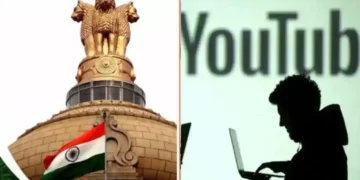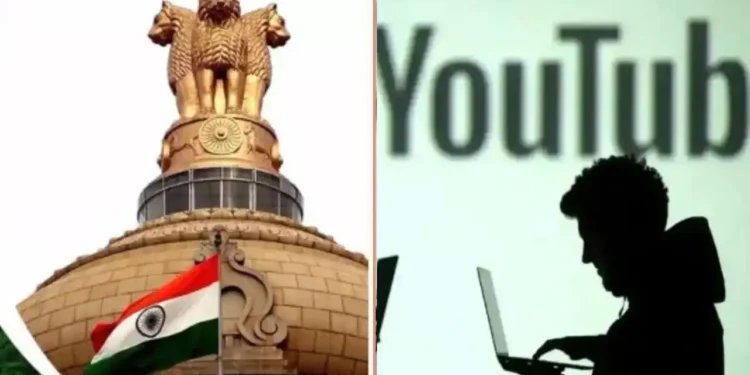In a significant move, India has banned 16 Pakistani YouTube channels, including popular news outlets such as Dawn, Samaa TV, ARY News, and Geo News, for spreading provocative and communally sensitive content following the tragic Pahalgam terror attack. According to government sources, these channels, with a combined subscriber count of 63 million, were found to be disseminating misleading narratives and misinformation, aiming to provoke unrest and target India’s image amid heightened tensions between the two nations.
The channels in question, including those belonging to journalists like Irshad Bhatti, Asma Shirazi, and Umar Cheema, have been accused of promoting false information and stirring communal tensions, particularly in the aftermath of the terror attack on April 22 in Pahalgam. This attack, which resulted in the deaths of 25 tourists and one local Kashmiri, has escalated relations between India and Pakistan, with India strongly condemning the act and Pakistan suspected of being involved in the terror plot.
In response to the ban, users attempting to access these channels are met with a message stating: “This content is currently unavailable in this country because of an order from the government related to national security or public order.”
The ban also targets other channels, including The Pakistan Reference, Samaa Sports, Uzair Cricket, and Razi Naama. These platforms have been linked to the propagation of divisive content that undermines India’s sovereignty and security.
The Indian government has intensified its crackdown on Pakistan following the attack, which it holds responsible for supporting terrorism in the region. As part of its retaliatory measures, India has suspended the Indus Water Treaty and visa services for Pakistani nationals. In response, Pakistan has threatened to suspend all bilateral agreements with India, including the Simla Agreement.
Prime Minister Narendra Modi condemned the attack, vowing that the perpetrators would face severe consequences. He expressed the nation’s grief and outrage, calling the attack an assault on India’s “soul.” He pledged that India would track down the terrorists responsible and ensure justice is served.
Additionally, the Indian government has issued a formal warning to the BBC over its reporting of the Kashmir attack. A headline by the BBC that read, “Pakistan suspends visas for Indians after deadly Kashmir attack on tourists,” was criticized for potentially implying that India was responsible for the deaths of the tourists. The Indian Ministry of External Affairs has expressed its strong sentiments to BBC India’s head, Jackie Martin, and has formally addressed concerns regarding the use of the term “militants” to describe the terrorists responsible for the attack. The government has also announced that it will closely monitor the BBC’s future coverage of the situation.
These developments underline the strained relationship between the two countries and highlight the growing scrutiny of media and digital platforms for content that could undermine national security and public order.
Also Read: Tensions Erupt in Santacruz Mumbai’s Golibar Area After Man Attacked for Burning Pakistan Flag















 Categories
Categories









